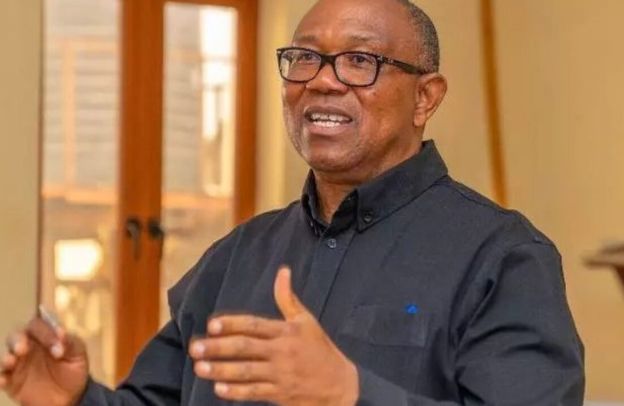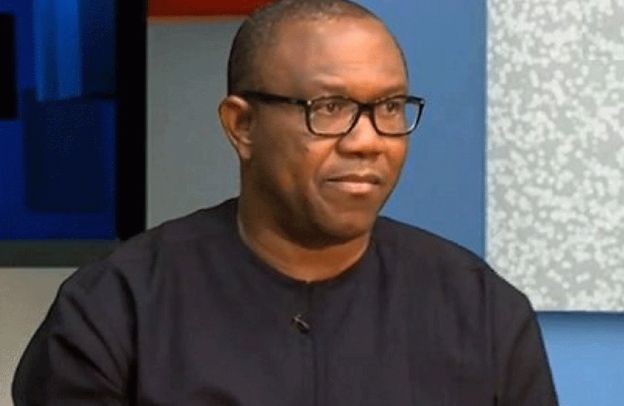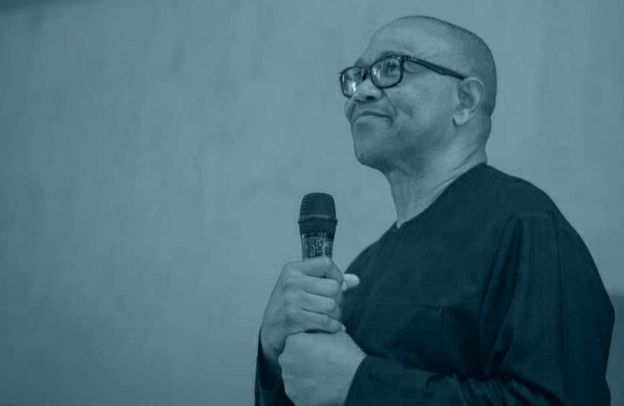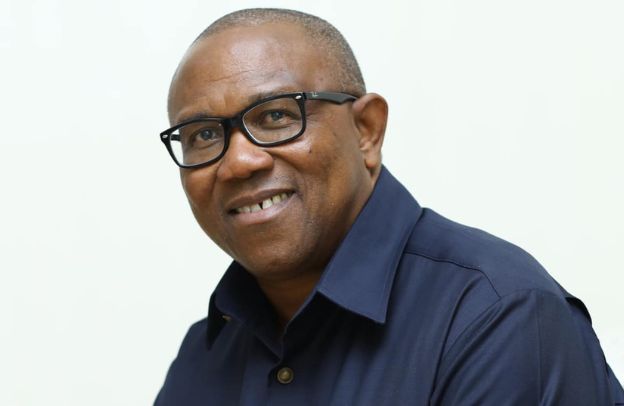Nigeria Economy Challenges, The Way Forward And Obi’s Economic Policies

Nigeria at one time was known as the ‘giant Of Africa’ and that was a period when its economy was fairly climbing the ladder of stability during the period of the Oil boom in the 1970s, which generated wealth not for the economy alone but individuals whose interest surged since the discovery of oil. However, in recent years, Nigeria’s economy is nothing to write home about, the economy has been on a furious downturn caused by multi-faceted problems.
Want to learn more about storytelling? Start by downloading the first chapter of The Storytelling Series for Small Businesses.
By all accounts, Nigeria is now ranked as one of the ten poorest countries in the world, however, that’s not to say the country lacks potential resources that will up the economy. Nigeria’s government has been borrowing funds from other countries to facilitate its economy, fight crime, and improve the health sector, yet nothing seemingly positive has been rendered by the government.
Now, Nigeria owes a whopping amount of $41 billion, with no identified procedure for paying back the national debt. For the record, China is not the only country Nigeria is owing.
Undeniably, this economic downturn has pursued potential investors from the country and continuously, Nigeria grows to be more consumptive rather than productive which has depreciated the country’s human resources that are available in large numbers.
This consumptive approach of the Nigerian economy has brought about the demise of the country’s manufacturing sector – almost all Nigerian-made products are assembled in Nigeria. The service sectors, health sector, and educational sector – which help to facilitate a country’s economy are precisely in shambles.
The major challenges facing Nigeria’s economy include.
1. Overconcentration on Oil
The Oil boom since the 1970s brought about an undeniable shift of the government’s focus from other sectors of the economy which would have generated massive wealth for the country.
Everybody wants ‘oil money’ thus most governments that had been in power ensured to take advantage of the oil and fill their pockets. The service sector which is the mainstay of places like Dubai is flat-out ignored in Nigeria. Preservation of most historical sites across the country which would have lured thousands of tourists to the country is ignored, leading to the crumbling of these historical sites.
Though the government honed its focus on the oil and gas derived from South-south areas, little effort has been put to establish an oil refinery, rather Nigeria’s oil is being refined in other countries. Thus, leading to the hike in prices of oil and gas. It’s appalling, to say the least.
2. The distance between government and the citizenry:
Nigeria’s government distances itself far too much from society, bridging its communication and interaction process through which the government will listen, understand, and implement the demands of the citizenry.
The practice of democracy brings the government to the grassroots which is the most vital way relationships and interactions are fostered between the government and the society, however, Nigeria despite its claims of practicing democracy has not fostered that sort of relationship, adding to the sufferings of lower-class Nigerian societies.
A government can’t claim good leadership without having close affinity with its society, hence for this to be successful, mechanisms through which the citizens can air their views should be established.
Reintroduction of the Ombudsman or Ombudperson officials would be vital as they would help table the complaints of the citizens to the government.
3. Corruption in the Nigerian systems
It’s derogatory to say but corruption is now a culture in Nigeria. Undoubtedly, Nigeria is not the only country where corruption takes place, it has spread in most parts of the country.
It’s no news again about politicians building houses that swim in millions, cars, and investments made abroad. Nigerian politicians are the worst politicians in the world because of their greed and hoarding of public funds.
Oftentimes, huge sums of looted money have been discovered by the government. For example, the EFCC reported discovering about $3.6 billion from the former head of state, Sani Abacha, looted during his tenure in office. However, there was no report on how the money was used.
There are also several other similar cases of looting by recent politicians which adds to the country’s economic challenges. If corruption is ripped off from Nigeria not many people will be in the government and the country’s economy will stabilize.
4. Inability to implement its economic policies and the constant changes of the economic policies:
We can’t hope for a stable economy without having a stable economic policy. Each new government brings with it changes in economic policies in Nigeria, making the economy unstable. For example, the Obasanjo regime introduced various economic and agricultural policies, one of which was NEEDs.
Large sums of money were put in place for the effectiveness of this program to foster economic growth- little achievements were made and before long another government stepped in and changed the police. Thus, all the sum of money invested in NEEDS went down the drain.
Furthermore, the government barely implements these economic policies in the long run, leaving the Nigerian economy on a thin thread.
5. Underdevelopment Of The Human Resources:
Nigeria is among the African states with large human resources; however, this human capital is barely equipped with the right skills and knowledge that will be put back into the economy.
The poor system of education in Nigeria doesn’t help to brush, or sharpen the youths with the advanced knowledge needed for economic development, rather outdated methods and irrelevant courses litter the school system, bringing about the underdevelopment of the human resources available.
What’s the way forward?
To arrest the constant challenges that plague Nigeria’s economy, there are critical steps to take. These steps will help foster the growth and development of Nigeria’s economy and these steps include:
1. Fight Corruption
Given that corruption has slowly become a culture in Nigeria, wiping it off won’t be that easy yet it’s not impossible. Establishing strict legislation that opposes corrupt practices is one of the most important ways to fight corruption. With the establishment of this legislation, all these corrupt politicians will find it hard to indulge in fraudulent acts that drag the economy back.
The establishment of agencies that oversee the corruption fight will be necessary and these agencies should be independent and must work in line with the written legislation. The Economic Financial Crime Commission is a typical example of such an agency, however, the EFCC should be free from executive control, so they’ll be able to serve as a watchdog over the activities of politicians.
2. Cease Over Dependence On Oil:
Oil and gas constitute Nigeria’s total GDP, thus, neglecting other sectors of the economy. This over-dependence brings about inflation in the economy when there’s a change in oil prices. Therefore to arrest this constant inflation that stutters the economy, the government should channel its focus to other sectors such as travel, agriculture, etc.
Making agriculture its mainstay as it was before will help stabilize the economy if the government adopts the comparative cost advantage theory. Also, funds and implements should be provided for farmers as it was done before. With this advanced implementation, more cash products will be produced and used for exchange in the foreign market.
3. Promoting Peace and Unity:
Insurgency and banditry stutter an economy as investors will be scared away from investing in a crisis-ridden area. Thus, to see the improvement and stability of Nigeria’s economy, peace and unity must be vied for as it attracts investors- foreign and local – to make investments that will foster the growth of the economy.
4. Patronizing Nigerian Products:
Eradicating the notion that Nigerian products are inferior and purchasing more of them will bring the economy forward. Nigerians’ over-dependence on foreign products has discouraged production processes across the country because little attention is given to it. By patronizing the local products, the economy becomes more stable and improves generally.
What are Obi’s economic policies?
Having seen the attention that the Nigerian economy needs, Peter Obi during his campaign has listed ways he’ll work on advancing the country’s economy.
Youth engagement and human capital development that improves the lives of workers and families and productivity-enhancing education that empowers labor competitiveness.
Also, he promised a robust foreign policy that restores Nigeria’s strategic relevance.
He said, “As your president, I Peter Gregory Onwubuasi Obi, my Vice President, Yusuf Datti Baba Ahmed, and our team pledge to:
- “Secure and unite our dear nation, to manage our diversity such that no one is left behind in Nigeria.
- “Move Nigeria from consumption to production.
- “Embark on comprehensive legal and institutional reforms and practicable restructuring measures, to fight corruption, enthrone rule of law, and an all-inclusive and effective government.
- “Prioritize Human Capital Development through robust investments in STEM education, health, and infrastructural development, with emphasis on wealth creation, distribution, and sustainable development.
- “Engineer the transition of Nigeria from fossil fuel dependency to climate and eco-friendly energy use.
- “Pursue holistic poverty eradication with emphasis on agricultural revolution through effective utilization of our vast arable lands, particularly in Northern Nigeria, and erase Nigeria’s categorization as the poverty capital of the world.
- “Improve access to finance, Particularly to MSMEs, youths, and women, to significantly reduce unemployment and insecurity.
- “Ensure that in policy and practice, governance will be made more inclusive, cost-effective, transformative, and less transactional (No more sharing of the national wealth by a few)
- “Ensure that our diversity will be leveraged to give women and youths, the aged and persons with disabilities, an unfettered voice in governance, and a renewed sense of patriotism and faith in Nigeria.
- “Ensure that Nigeria is progressively better governed through legislative, executive, and judicial reforms so that the Constitutional separation of powers among the three arms of government is properly followed and the three tiers of government are allowed to function independently and jointly for a more inclusive and sustainable Nigeria.”
Conclusion on Nigeria’s Economy Challenges, The Way Forward, And Obi’s Economic Policies
Nigeria’s economy can be geared forward using the right steps. The government should endeavor to develop its human capital and make intensive use of the available resources in the country for the growth and development of the economy.
Want to learn more about storytelling? Start by downloading the first chapter of The Storytelling Series for Small Businesses.





